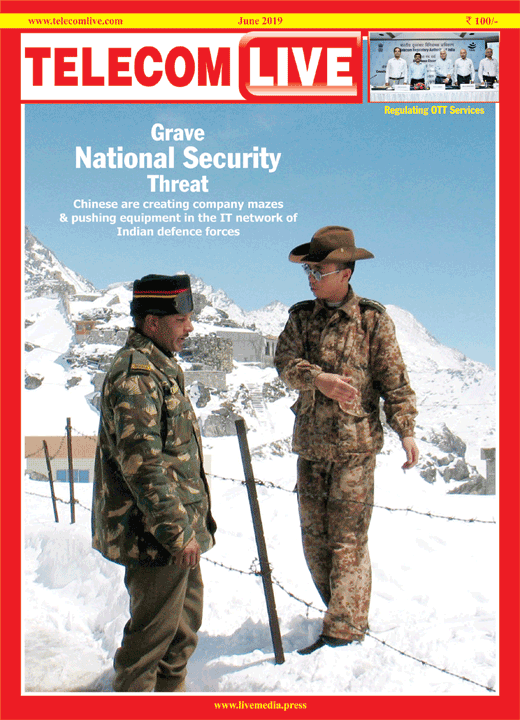Security risks and rancorous military build-up by the Chinese on Indian borders are very well documented. Also widely accepted is the fact that the Chinese are off bounds from the sensitive sectors in most countries given their cyber record for breaches. We share an uneasy peace with China, it eyes our territories in the north-east conducting incursions with regular periodicity and is in deep nexus with Pakistan, which is the launchpad for terror activities against India. Of course even with all this we have an enormous trade with China, which too is tipped in its favour. So, when Chinese are selling their wares through a maze of companies in sensitive IT networks for the Indian defence forces, it should raise the hackles of our security establishment. Our cover story reveals the details of two such procurements where the Chinese have adopted this methodology, one is under process and another one has already been concluded.
A Chinese tech company has entered the fray by masking its identity for BSNL’s IT network order for the defence forces. The procurement is being made for installing Next Generation Operations System and Software (NGOSS) based Unified Network Management System (UNMS). The scope of work includes setting up network operation centers, security operation centers, data centers etc for countrywide armed forces Next Generation Networks (NGN) on turnkey basis. All these equipment and networks are cross connected through intelligent cabling system. Specs reveal that this intelligent cabling system has high sensitivity in-built since it involves tracking and documenting all security assets and making network changes from a centralized location. Our investigations reveal that the Chinese company in question is RiT, which has been masked as an Israeli company. This technology vendor participating with L&T, is owned by Chinese state entities, Yangtze Optical Fibre & Cable Co (YOFC) and China Huaxin. The second contract already concluded is the purchase of 15,000 IP phones for use by Indian Navy, this again has been snuck into India by the Chinese, posing as Mexican product.
Security concerns also became the mainstay of the Trai open house consultation on ‘Regulatory Framework for Over The Top (OTT) Communication Services.’ Telcos bemoaned the lack of level-playing field in security matters vis-a-vis OTT players. While all the compliances are stacked up for telcos, like data localization, real time interception, the OTTs are allowed to roam scot-free. Both perform the same function of communication, but the moment the issue of security compliances is raised, the OTT players create a hue and cry about privacy while providing backdoors for western governments. Additionally, control of data is offshore and in private hands. Besides national security, there is a compelling law and order dimension. Because the OTTs have such an iron curtain in India, they have become the communication of first choice for a host of criminals. Read our cover & lead stories for full details.




